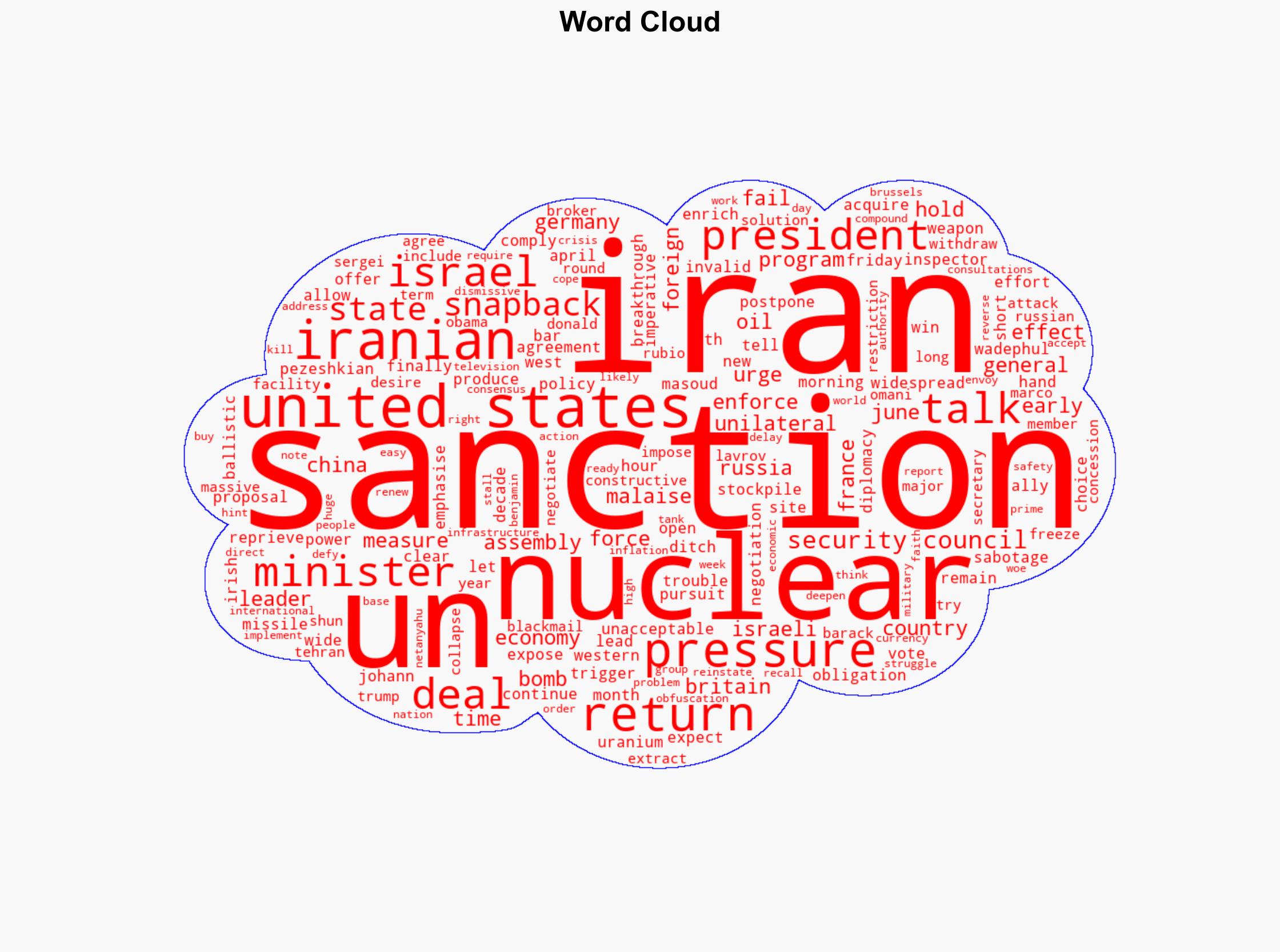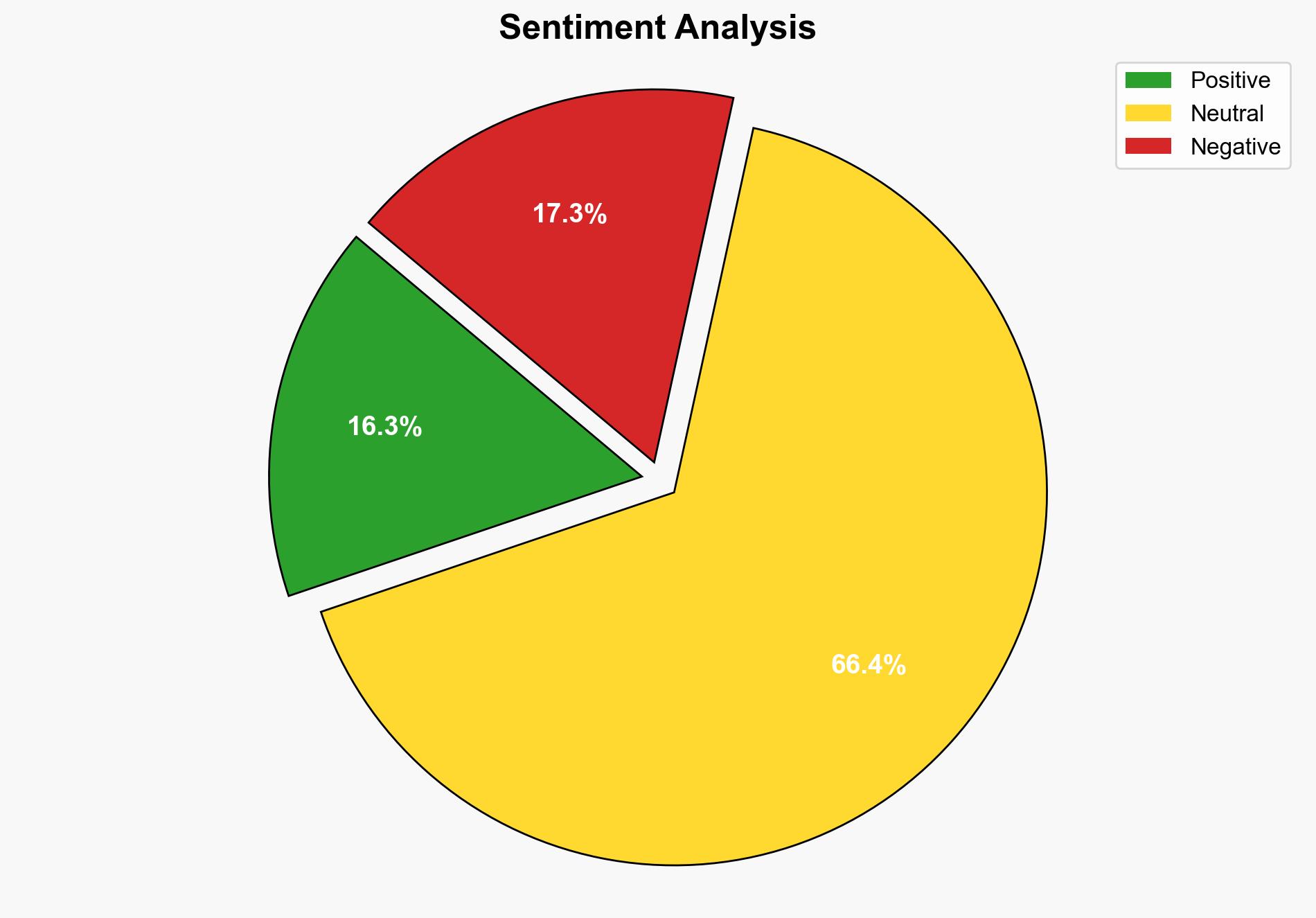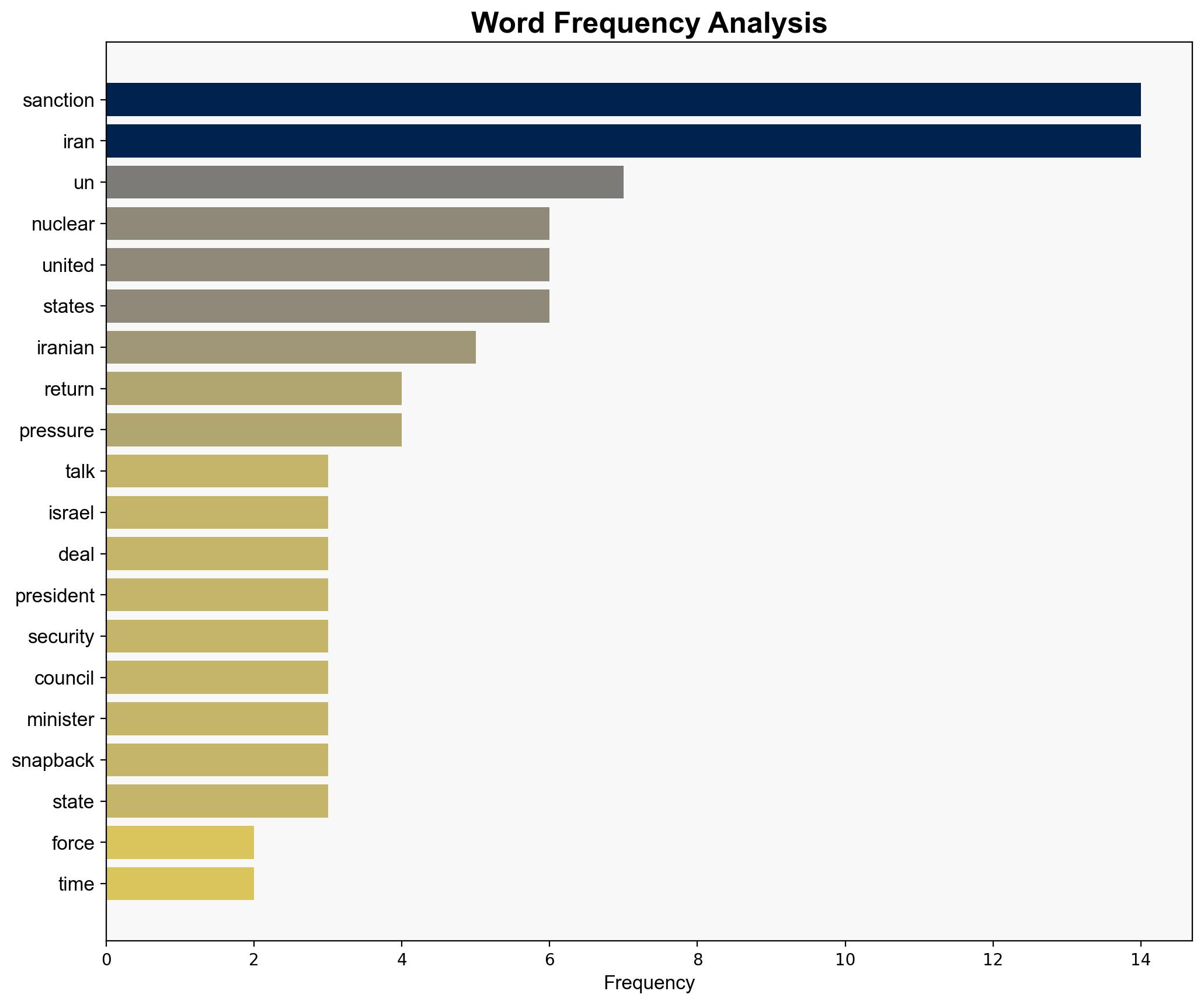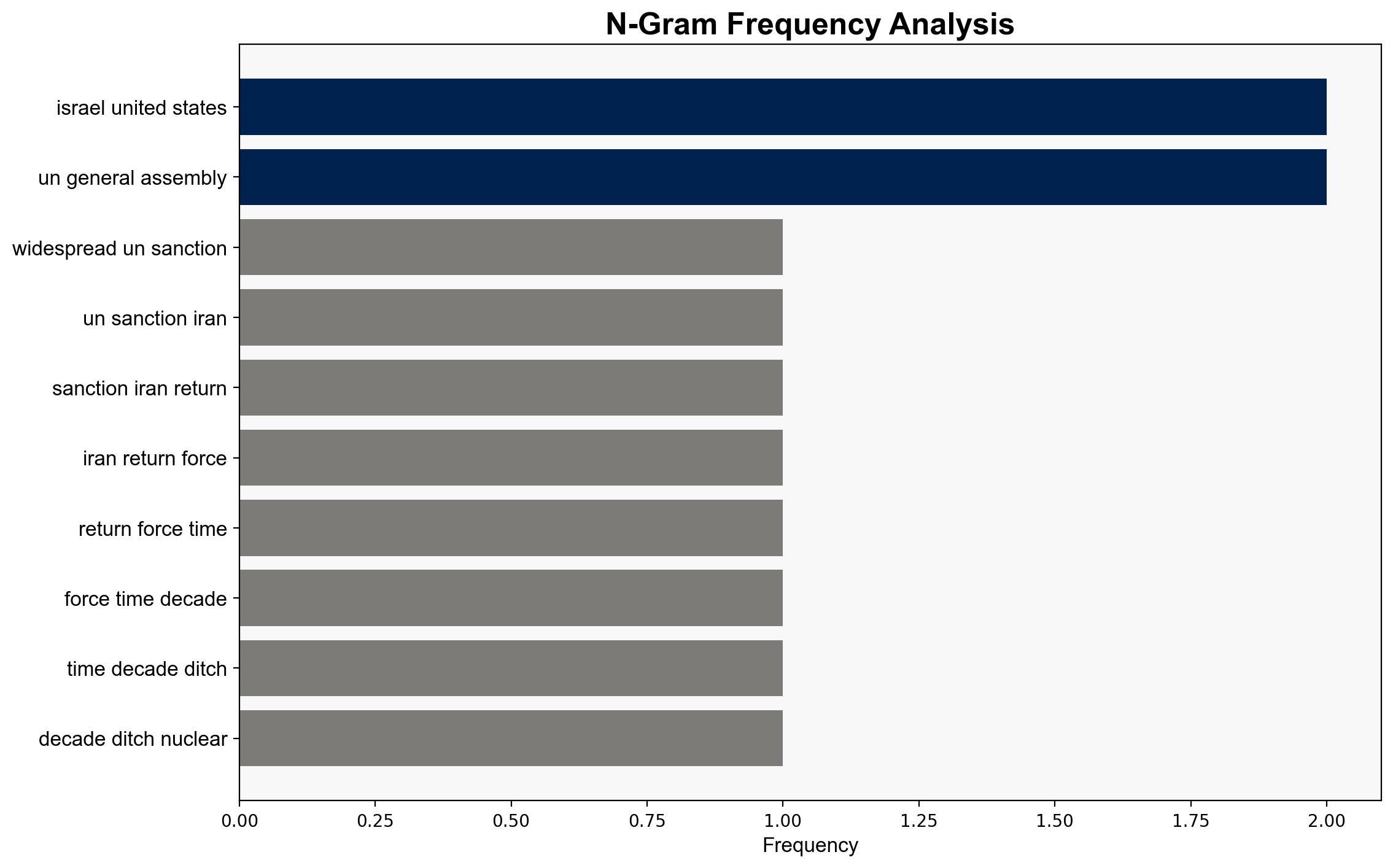UN sanctions return to hit Iran after nuclear talks fail – RTE
Published on: 2025-09-28
Intelligence Report: UN sanctions return to hit Iran after nuclear talks fail – RTE
1. BLUF (Bottom Line Up Front)
The return of UN sanctions on Iran, following failed nuclear talks, is likely to exacerbate Iran’s economic challenges and increase regional tensions. The most supported hypothesis is that sanctions will lead to heightened economic distress in Iran, potentially destabilizing the region. Confidence level: Moderate. Recommended action: Engage in diplomatic efforts to reopen negotiations while preparing for potential regional instability.
2. Competing Hypotheses
1. **Sanctions will lead to Iran’s compliance with international nuclear agreements**: This hypothesis suggests that the economic pressure from renewed sanctions will force Iran to comply with international demands to limit its nuclear program.
2. **Sanctions will exacerbate Iran’s economic problems and increase regional instability**: This hypothesis posits that rather than compliance, the sanctions will deepen Iran’s economic woes, leading to internal unrest and potential aggressive actions in the region.
Using the Analysis of Competing Hypotheses (ACH) 2.0, the second hypothesis is better supported due to Iran’s historical resilience to sanctions and its strategic alliances with Russia and China, which may mitigate some economic impacts.
3. Key Assumptions and Red Flags
– **Assumptions**: It is assumed that Iran’s economic resilience will be tested but not broken by sanctions. It is also assumed that Russia and China will continue to support Iran, undermining the sanctions’ effectiveness.
– **Red Flags**: The possibility of Iran accelerating its nuclear program as a form of resistance. The potential for misinformation or propaganda from involved parties.
– **Blind Spots**: The internal political dynamics within Iran that may influence its response to sanctions are not fully understood.
4. Implications and Strategic Risks
– **Economic Implications**: Increased inflation and currency devaluation in Iran could lead to public unrest.
– **Geopolitical Risks**: Heightened tensions between Iran and Western powers, potentially drawing in regional allies and adversaries.
– **Military Escalation**: The possibility of military action by Israel or the United States if Iran’s nuclear activities are perceived as a direct threat.
– **Cybersecurity Threats**: Potential for cyber retaliation by Iran against sanctioning countries.
5. Recommendations and Outlook
- Re-engage in diplomatic talks with Iran, possibly through intermediaries like Oman, to explore new negotiation frameworks.
- Enhance monitoring of Iran’s nuclear activities to detect any acceleration in its program.
- Prepare for potential regional instability by strengthening alliances with regional partners.
- Scenario Projections:
- Best Case: Iran returns to negotiations, leading to a new agreement and easing of sanctions.
- Worst Case: Iran accelerates its nuclear program, leading to military conflict.
- Most Likely: Continued economic strain on Iran with sporadic regional tensions.
6. Key Individuals and Entities
– Masoud Pezeshkian
– Sergei Lavrov
– Marco Rubio
– Benjamin Netanyahu
– Johann Wadephul
7. Thematic Tags
national security threats, economic sanctions, nuclear proliferation, regional stability




